How to Read a Book by Mortimer Adler
Become an Excellent Reader
Video: How to Read a Book by Mortimer Adler (Become an Excellent Reader)
He should be as much prepared to have his own mind changed as to seek to change the mind of another. When you read for understanding, you are reading for truth, not to win or solidify your argument. How you read is just as important as what you read. And learning to read well may be the single most important skill you can learn in life.
Let’s discuss Adler’s “How to Read a Book”.
What’s going on, everyone? Welcome to The Cause. Today, we will be discussing what could be the single most important skill in life.
How to read a book.
Not just read a book, but absorb a book. How to digest the book. Taste some and truly understand others. From the Bible to Aristotle to Jane Austin, the skill and power of reading well can save your soul, change your life, and bring you joy.
If you want to participate in what has been called the “great conversation,” it is essential to read well. Not so much to contribute, as only a few have the minds and are capable of that, but at least to understand. To understand beauty, virtue, ethics, and what truly constitutes living a good life.
One man in the past century did more than just about any other to compile, promote, and share the great conversation with us. His name was Mortimer Adler. He was born in 1902 and died in 2001, so this dude lived before the airplane and would have died right after Google was founded. The changes that generation witnessed blow my mind. He wrote a book in 1940 called “How to Read A Book.” He would revise it in the 1970s with the help of Charles Van Doren. With that being said, let’s discuss this remarkable book.
How to Read a Book is about how to read for understanding vs just for information. Can you not only remember what you read, but also explain it? If need be, can you demonstrate it or teach it? You can learn by instruction, or you can learn by discovery. Reading because a teacher advised you to fill your mind with information is reading by instruction. Dates, rules, quotes, and significant events.
But How to Read a Book is for those who read for discovery. Every book you finish is a piece of the puzzle you are putting together. It, in a way, gives a clue to the next book you need to consume. The more you read, the hungrier you get, and reading changes from a simple task to an epic pilgrimage to whatever it is you are seeking. The concepts in this book are simple, practical, and very easy to implement.
I will outline his reading method and share what I believe are the major features and key takeaways. The book is separated into four parts. Let’s begin with the four levels of reading. The First Level is Elementary Reading, which is basically what it sounds like. There is a focus on ensuring that this foundational level is reached because it is crucial to have in place before achieving a higher level of reading. A notable quote in this section is as follows.
“We must become a nation of truly competent readers, recognizing all that the word competent implies. Nothing less will satisfy the needs of the world that is coming.”
Adler is saying not just for your own sake, but for the sake of our nation, it is your duty to learn to read and learn to read well.
We quickly move into the second level of reading, which is inspectional reading. We use this a lot for emails and reading social media content, choosing keywords, and skimming. Adler suggests skimming a book first, reading through the table of contents, identifying key words, and then perhaps reading the first sentence or two of each chapter to get a feel for and understand the book's flow. For one, it will save you time if the book sucks and is not worth reading. There are books we have all quit reading simply because they do not meet the requirements we had intended.
A good analogy here is a jigsaw puzzle. My mom will collect all the edge pieces and assemble the frame completely before she starts working on the inside of the puzzle. To me, that is inspectional reading. You are forming a framework for what the book will be about, and if you approve of the framework, you may decide to spend time reading the book through and completing it. Before moving on to the third level of reading, it is essential to understand what Active Reading entails.
Adler brings up Active reading at this point in the book, and active reading is just focused reading. Usually if you are intensely inspectional reading (skimming) you are alert and focused. You should ask questions while reading to engage with the book. Questions like What is the book about? Is the book true in whole or part? And what of it?
I know some people are against it, but to read well, you have to make the book yours. Mark the book up. Write in it. Argue with Machiavelli in the margins, cheer on Woolman with an underline, and highlight a quip from Epictetus with a star. Find the zingers in the book and mark them up accordingly. The more you scribble in the book, the more you make the book your own. The more your mind starts to blend with the author’s.
As Adler says, “It is the highest respect you can pay the author.”
The third level of reading is Analytical reading. This level of reading goes beyond reading for entertainment or information. At this level, you are reading for understanding and discovery. He reviews some rules, such as classifying books before reading them. But a major takeaway here is coming to “terms” with the author.
Adler says,
“If the author uses a word in one meaning, and the reader reads it in another, words have passed between them, but they have not come to terms. Where there is unresolved ambiguity in communication, there is no communication.”
The goal of the writer is to make the terms understandable and clear, and for the reader, it is their duty to work with the author to determine the true meaning. Adler also says you operate with the meaning you already possess. This is why I have found reading much easier later in life. I possess more meaning and experience in things when they intrigue me more. Terms in longer form turn into propositions, and,
“Propositions are nothing but expressions of personal opinion unless they are supported by reason.”
Which we see today more than ever.
“Unless you can show some acquaintance with actual or possible facts to which the proposition refers or is relevant somehow, you are playing with words, not dealing with thought and knowledge.”
Think about that. It is easier to play with words and mold them to fit a narrative rather than put in the work to find the truth or factual evidence. We often see this with politicians, and the following line drives it home.
“One of the most familiar tricks of the orator or propagandist is to leave certain things unsaid, things that are highly relevant to the argument, but that might be challenged if they were made explicit.”
This is why the long-form podcast has gained popularity over the past decade. I feel that, as humans, we deep down want to know the truth and learn. Adler says, The profit in good conversation is something learned.
He then moves into the concept of criticizing a book. To read it well, you have to judge it. Pick it apart, compare it to what you know to be true. Compare it to another great book. But you can’t do that before you fully understand the book. Nothing is worse than someone who degrades a book and then says they couldn’t get past the first 10 pages. At that point, you could not have a complete understanding of the book. The best critique you can possibly have about it is simply abstaining from judgment. You can’t judge correctly until you understand, and there is no way you understand if you haven’t read. But prejudice makes us judge it so. You may not be teachable on specific subjects that you have a prejudice against.
Adler says..
“Teachability requires that a teacher be fully heard and, more than that, understood before he is judged.”
Adler offers some valuable advice here that I believe is more necessary than ever nowadays.
“Do not begin to talk back until you have listened carefully and are sure you understand. Not until you are honestly satisfied that you have accomplished the first two stages of reading should you feel free to express yourself.”
The understanding of the subject is highly important.
“To agree without understanding is insane. To disagree without understanding is impudent.”
Most of the time, we should suspend judgment, which is also a form of criticism. With that being said, if criticism of a book or anything is not based on understanding, it is irrelevant. Discard it, throw it out, it means nothing.
He then moves into a topic that I believe we could all work on a little more: prejudice and disagreement.
“Men are creatures of passion and prejudice. The language they must use to communicate is an imperfect medium, clouded by emotion and colored by interest, as well as inadequately transparent for thought. Yet to the extent that men are rational these obstacles to their understanding can be overcome.”
Our language is not perfect, but that is why we have the ability to rationalize things and use reason. A great line here in the book was this one.
“The relatively ignorant often wrongly disagree with the relatively learned about matters exceeding their own knowledge.”
I have been guilty of this. Entering into conversations I was not prepared for, and out of ego, arguing because I wanted to win instead of learn. But he says, “Inequality in knowledge is always curable by instruction.” Nothing is more of a turnoff than someone arguing a point they clearly have no knowledge of. Most of the time, those people are focused on being right and winning versus being educated and learning. Adler says,
“He should be as much prepared to have his own mind changed as seek to change the mind of another.”
In terms of reading a book, this is a crucial concept to keep in mind.
He goes into some aids to helping you read, and this section of the book is a little dated in my opinion, but still functional as the aids are still available. We now have numerous additional aids to reading, thanks to the internet. He is not the biggest fan of using reading aids to help you understand, because Adler believes the growth of reading comes from the wrestling match you have with it. To experience a marathon completely you can’t hop on a bike and ride from mile 10-20. I think Adler views most reading aids in that sense. You can use them, but do so sparingly. Adler says they cannot do the thinking for you. You have to think through the book.
He quickly moves into how to read all the different types of books, from practical to poetry. I will not dive into all of them individually, but there were a few takeaways that I want to highlight. The following line has sojourned in my head ever since I read it.
“Your main judgment will always be in terms of the ends, not the means. We have no practical interest in even the soundest means to reach ends we disapprove of or do not care about.”
Read that over a few times. I have attached that statement to so much of what is going on nowadays, and it has blown me away. We focus so much effort and resources on the means… and completely disregard the quality of the outcome. That is honestly insane once you sit down and deeply think about it. He has a blurb on propaganda that is just magically worded.
“What reaches the heart without going through the mind is likely to bounce back and put the mind out of business. Propaganda taken in that way is like a drug you do not know you are swallowing. The effect is mysterious; you do not know afterwards why you feel or think the way you do.”
That's another one to ponder for a bit. Learning to read well allows you to better defend against the dangerous drug of propaganda. I would love to know how much information we take in nowadays, that is the actual truth, propaganda, or misinformation.
He mentions how to read history, and since this is my favorite genre to spend my reading time on, I wanted to highlight a few lines from the book. The first is an important note to remember.
“History suggests the possible, for it describes things that have already been done.”
If it happened in the past, then we have reason to believe it could happen again. Adler warns us of reading history in a biased way. You have to read history as a detective, discovering for yourself what truly happened. The victor often writes history, and we must consider this when studying the past. Churchill knew this very well, as his quip entails.
"History will be kind to me, for I intend to write it."
And write it he did. Adler also goes over reading Philosophy, and a couple of lines stood out to me.
“A mind not agitated by good questions cannot appreciate the significance of even the best answers.”
He makes it clear that taking the time to think about philosophical concepts is just as important as reading the words. I believe that we often become so focused on the quantity of books we read and the goal of completing them that we forget the primary purpose of reading, which is to gain understanding. You may read about the cave and the light in Plato’s Republic, and then need to sit down and think about it for 30 minutes. The book closed, just thinking. Then pick it up and continue on.
“Everywhere I go in my head, I meet Plato coming back.”
We then take all this knowledge and understanding, and we move into the fourth and final level of reading.
Syntopical reading.
Syntopical - is a type of analysis in which different works are compared and contrasted.
So, to make it clear right off the bat, if you want to have a clear understanding of the American Civil War, you can’t just read about Grant and Sherman. You should also read about Lee and Longstreet. And if you just have military knowledge, you do not really know much about the Civil War.
What did the election of Lincoln signify? Who was Calhoun? Did you read Uncle Tom’s Cabin? How was the wealth accumulated in different areas of the county? Why was the expansion and abolition of slavery important to various political groups? We need to broaden our reading criteria and read multiple books from various sources and differing points of view. This is the importance of syntopical reading.
Adler says that when you read syntopically, you must be the master of this situation. Each book will give you clues and bring you closer to the destination of truth that you are in search of. You may realize that certain books should be read first before proceeding to the next. Adler suggests creating a list of questions and putting them in order, and then trying to read to discover the answers. Your answers may be different from what is socially acceptable. You may find that what you have been taught was incorrect.
Adler says, “The Synotpical reading, in short, tries to look at all sides and to take no sides.”
A problem with synoptical reading, and not so much a problem as a hurdle to overcome, is deciding which books to read on the subject you are interested in, and then determining the best order to read them in. If you are reading about the American Revolution, what books are best to read? Then what order would be most appropriate to read them in to give you the best understanding of the cause and effect of that significant point in history?
Elliott’s Harvard Classics, which I am reviewing on this channel, and Adler’s famous set, Great Books of the Western World, are both excellent examples of syntopical reading. The goal is to gain something from each book. However, the overall goal is to cultivate a lifelong love of learning and also to learn how to live. The overall goal is to build a character of respect and dignity. Adler concludes with a powerful passage that is more relevant today than ever.
He says…
“Television, radio, and all the sources of amusement and information that surround us in our daily lives are also artificial props. They can give us the impression that our minds are active, because we are required to react to stimuli from outside. But the power of those external stimuli to keep us going is limited. They are like drugs. We grow used to them, and we continuously need more and more of them. Eventually, they have little or no effect. Then, if we lack resources within ourselves, we cease to grow intellectually, morally and spiritually. And when we cease to grow, we begin to die.” Pg 336
We must remember that this was written over 50 years ago. A great deal has changed in terms of what competes for our time since then.
To conclue the book, Adler includes a reading list of 137 authors, arranged in chronological order from Homer to Alexander Solzhenitsyn. We will cover many of these through my series on the Harvard Classics, but I highly recommend reviewing that that list. All of the books build upon each other, and this list forms the foundation of what has been called the “Great Conversation.” I have linked the book here for your convenience.
Thank you so much for being here, and I hope you enjoyed this review on How to Read A Book, I would highly recommend this book to any student entering high school age, and most definitely to anyone just starting college. But even at my age, I learned a great deal from this book. It is practical, easy to read, and you will get something from it.
I roast my own coffee, and like always, it will be linked here and below. Read some amazing books, drink some amazing coffee, and I will see you very soon!
Mortimer Adler: How To Read A Book:
FAVORITE BOOKS:
• The Republic: Plato
• Plato/Aristotle Starter: Arthur Herman
• Alexander Hamilton: Ron Chernow
• The Hero of Two Worlds: Mike Duncan
• Washington: A Life - Ron Chernow
FAVORITE JOURNALS:
• Writing Journals
Listen or Watch Below.



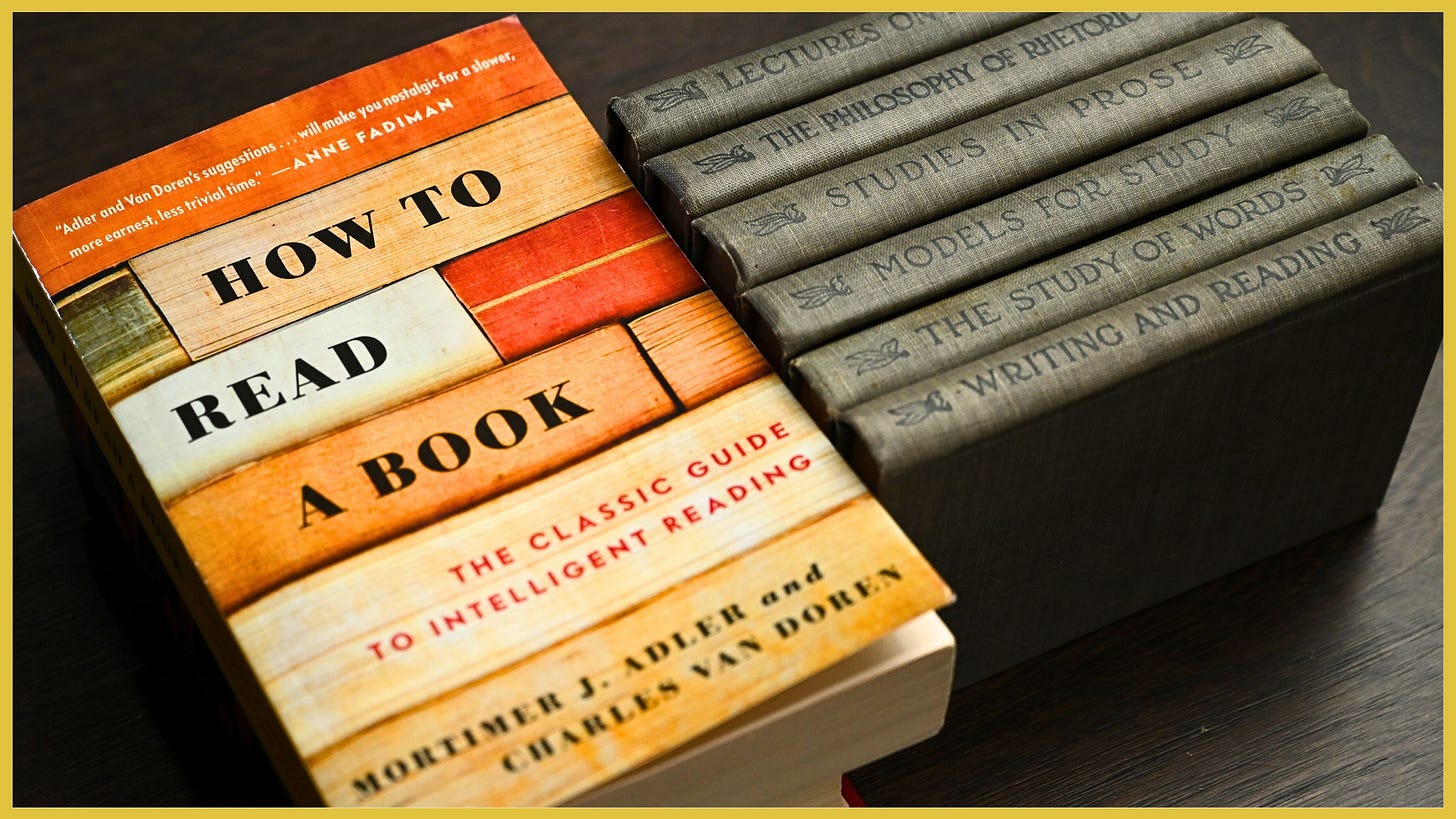
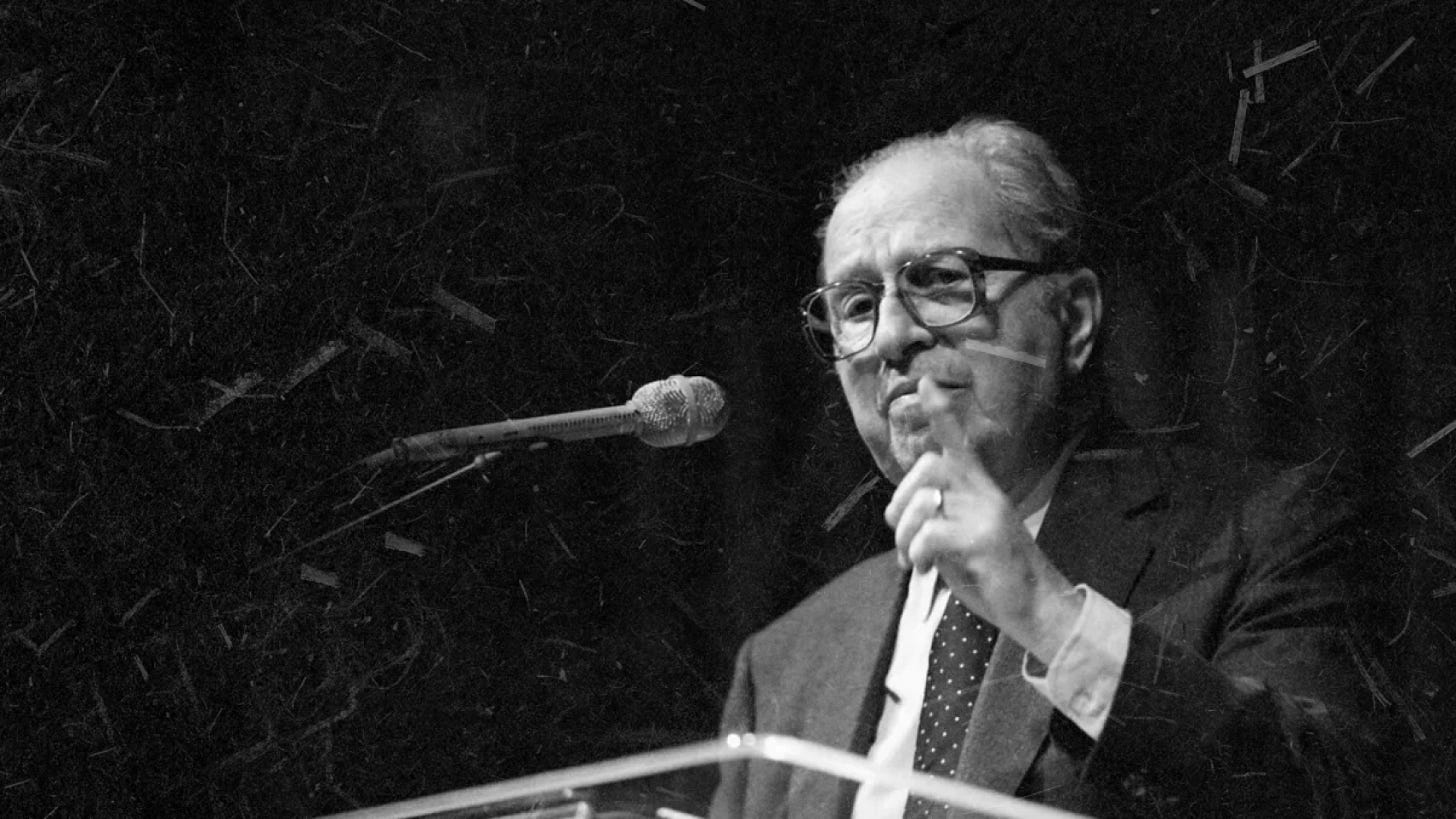
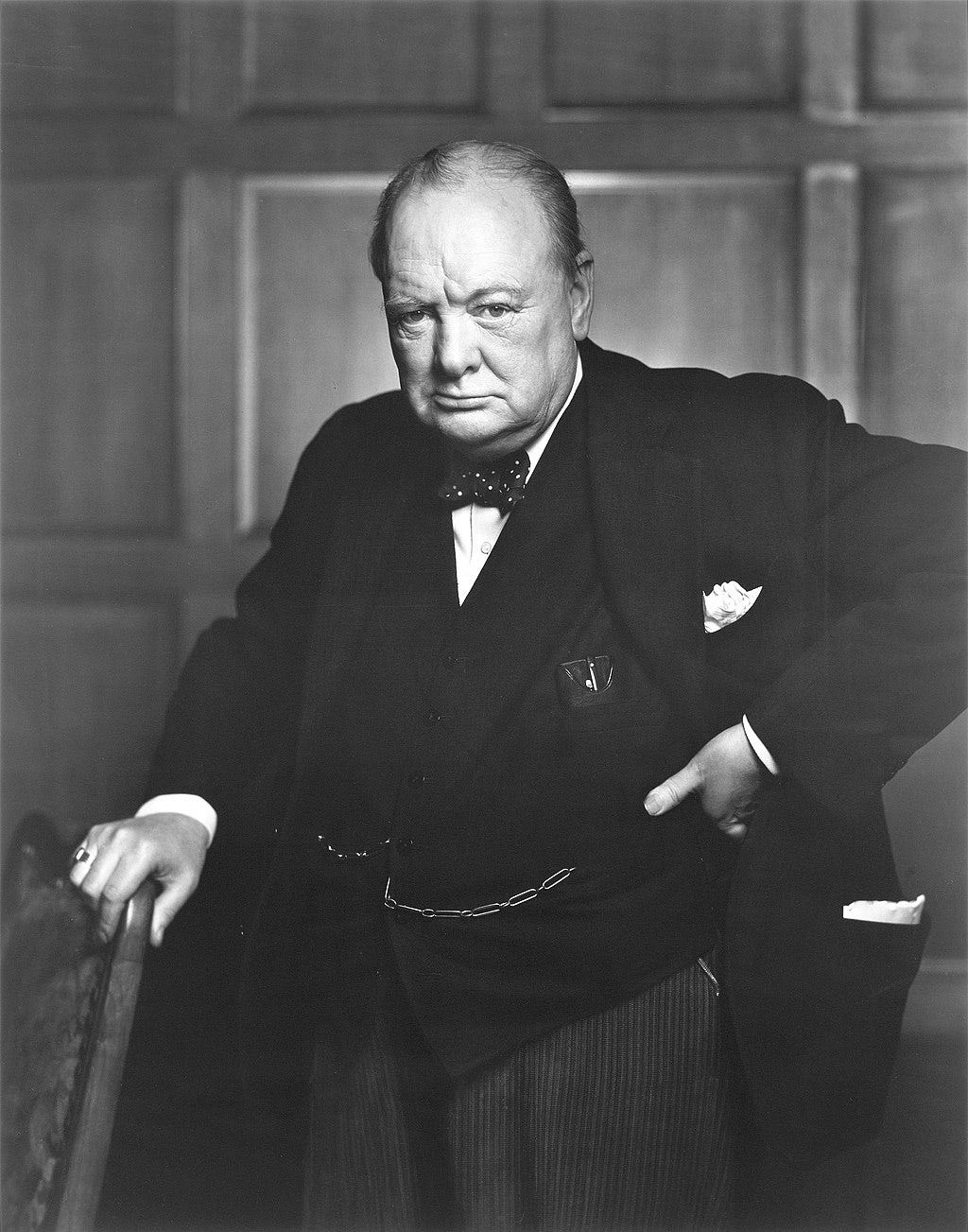
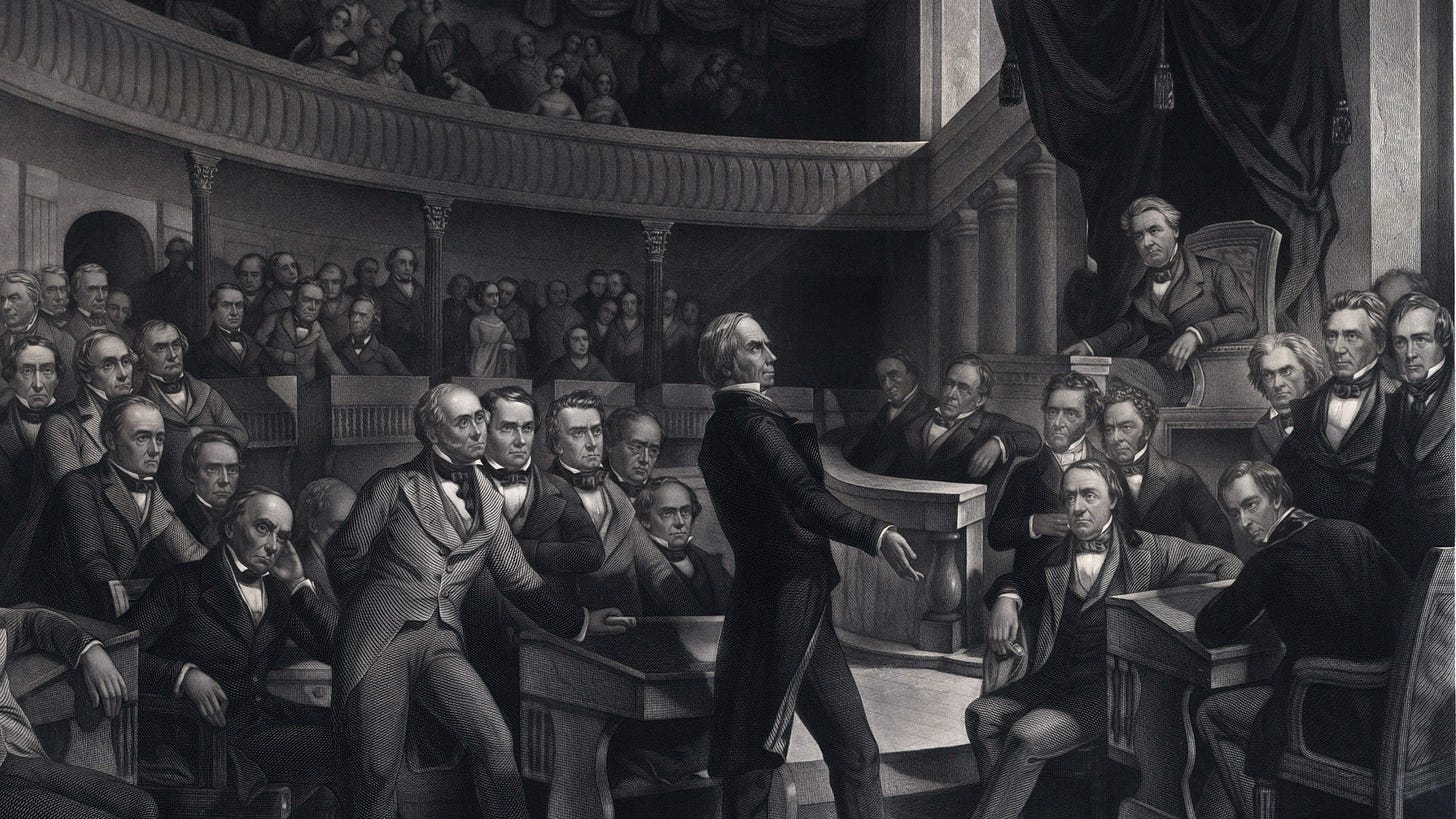
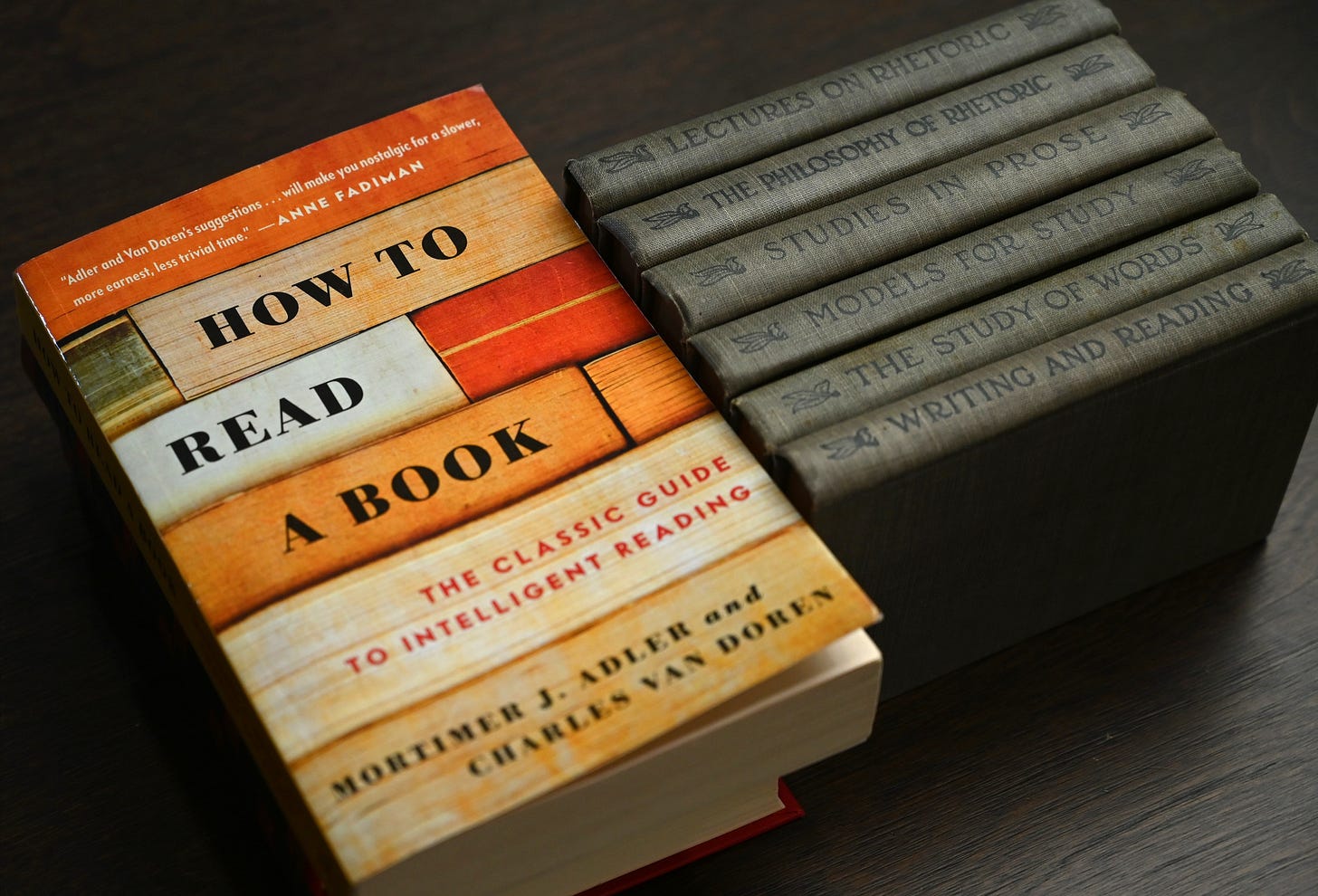

"The more you read, the hungrier you get." Reading will lead to salvation? Really?
Not sure, Rob. Could I suggest some G. Dyer:
https://fsgworkinprogress.com/2011/02/14/geoff-dyer-readers-block/
I really need to get to this book, it's been on my shelf for a long while now. I love history and I can agree that it is hard to know which books to include for learning about a particular historical period. Maybe I should just start with Adler's book first. 😅